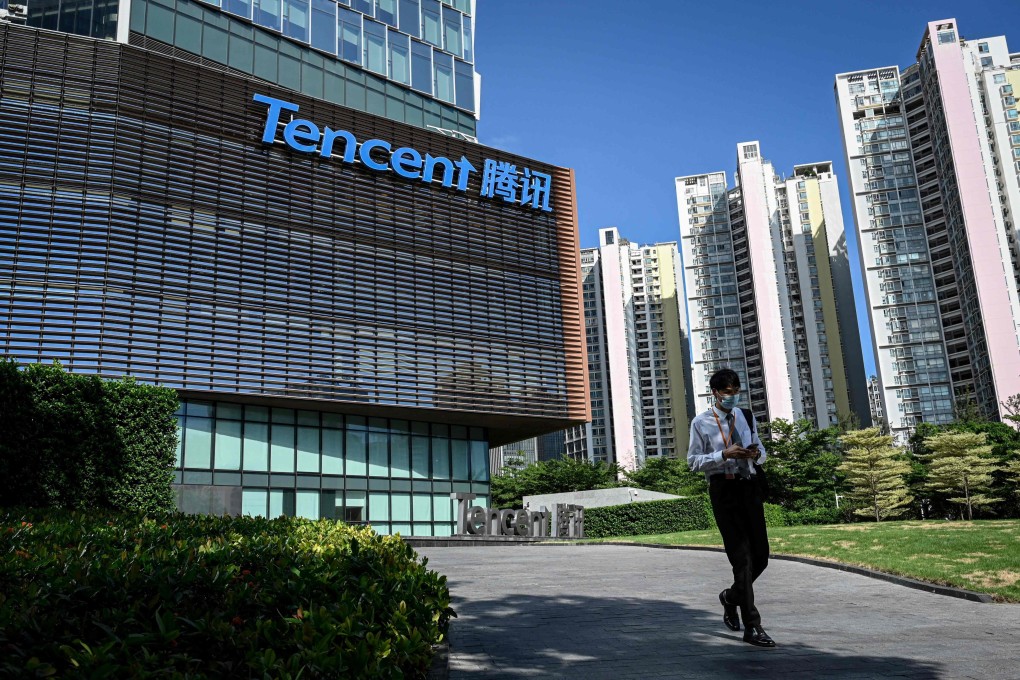Tencent denies report it plans to divest portfolio to fund share buy-backs amid weak share price
- A Tencent spokesperson said that the company did not have to sell any of its portfolio to fund share buy-backs, which can be done using current cash flow
- In the first half of this year, Tencent made 32 investments and acquisitions compared with 129 in the same period in 2021

Chinese tech giant Tencent Holdings, whose shares have fallen to their lowest level since 2018, has denied a media report that it plans to sell some of its investment portfolio to fund its own share buy-backs.
The Wall Street Journal reported on Tuesday that Tencent has reviewed its portfolio and identified possible targets for stake sales, including food delivery firm Meituan, real estate brokerage KE Holdings and ride-hailing platform Didi Global, aiming to free up cash and fund share buy-backs.
A Tencent spokesman said on Wednesday that the company did not have to sell any of its portfolio to fund share buy-backs, which can be done using current cash flow.
Tencent, China’s most valuable technology firm known for “owning half of the mountains and rivers” because of its extensive investment portfolio, reiterated that it has no plan and does not need to sell off assets to bankroll its share buy-backs.
In a statement issued Wednesday, a Tencent spokesman said: “We don’t have any target amounts for divestments. We have always invested with the goal of generating strong returns for our company and shareholders, not according to any arbitrary timeline or target.”
But there are growing signs that Tencent has entered a period of consolidation and divestment. The company’s payroll shrank for the first time since its listing, with 5,500 fewer employees reported in the second quarter.